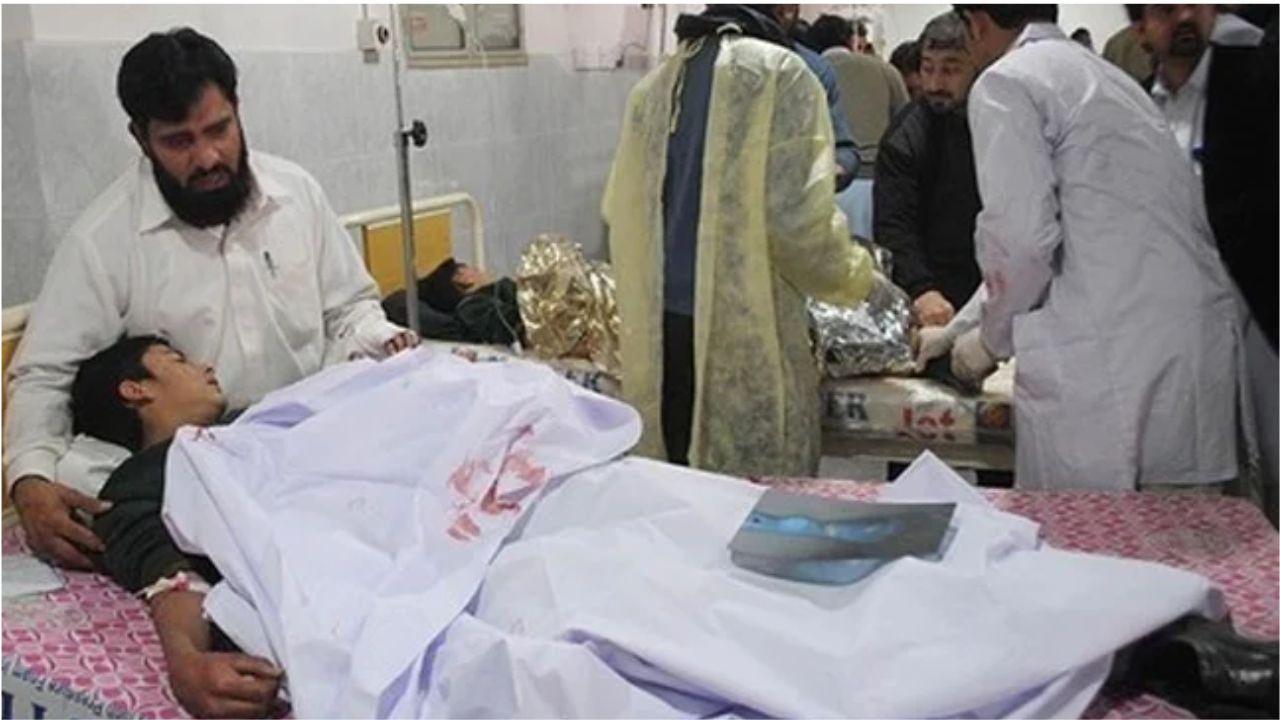Pakistan: Over 100 children die in Karachi due to Diphtheria outbreak | Know all about disease
World Health Organisationdefines diphtheria as a highly contagious bacterial infection that impacts the upper respiratory tract and ski

PTC Web Desk: In a tragic health crisis, over 100 children in Karachi, Pakistan, have lost their lives to diphtheria this year due to a critical shortage of Diphtheria Anti-Toxin (DAT), as reported by Geo News. Despite being a vaccine-preventable disease, the lack of timely antitoxin supplies has worsened the situation.
Sindh's health department has noted that last year, the Sindh Infectious Diseases Hospital documented 140 diphtheria cases, with 52 fatalities among them. The current year's death toll has surpassed these figures. Health experts have pointed out that the essential antitoxin used to treat diphtheria cases is unavailable across Sindh, including Karachi. Treating a single diphtheria patient requires antitoxin valued at around PKR 0.25 million, according to Geo News.
The World Health Organisation (WHO) defines diphtheria as a highly contagious bacterial infection that impacts the upper respiratory tract and skin. The bacterium produces a toxin, which can cause serious damage to the heart and nerves if left untreated. While the disease can be prevented with vaccines, maintaining immunity requires multiple initial doses followed by booster shots. This leaves under-immunised or non-immunised individuals at greater risk.
The recent outbreak in Pakistan has prompted public health experts to demand an urgent increase in vaccine coverage and interventions. However, these pleas for action have reportedly gone unanswered, contributing to the crisis.
What is Diphtheria?
Diphtheria primarily targets the throat and upper respiratory system, potentially leading to systemic health issues. A distinctive symptom of the disease is the formation of a thick, greyish-white membrane in the throat, which can make breathing and swallowing difficult. Symptoms typically emerge two-five days after exposure and include a sore throat, fever, swollen neck glands, and general weakness, as described by the WHO.

Muhammad Arif Khan, Director of the Expanded Programme on Immunisation (EPI) in Khyber Pakhtunkhwa, emphasised the critical importance of timely vaccination. He said last year diphtheria posed a serious threat to life, and vaccination was the only effective method to prevent the disease and curb its spread in communities. Unfortunately, inadequate vaccination coverage has left a large portion of the population vulnerable.
For those who have not received vaccination, diphtheria poses a significant risk. WHO data indicates that without treatment, the disease has a fatality rate of about 30% among unvaccinated individuals, with younger children being particularly susceptible. In 2023, about 84% of children worldwide received the recommended three doses of the diphtheria-containing vaccine during infancy, but this left 16% without sufficient protection. The coverage rates differ considerably between countries and even within regions, adding to the complexity of addressing the issue.
Pakistan has faced significant setbacks in maintaining robust immunisation rates. The COVID-19 pandemic disrupted routine immunisation programmes and surveillance efforts, further complicating the situation. A WHO report highlighted that the pandemic's impact on health services exacerbated existing challenges in delivering vaccines and monitoring disease outbreaks.
According to the World Bank Group, Pakistan's immunisation rates show substantial regional disparities. The lowest rates are observed in Balochistan, where only 38% of the population receives basic immunizations. When compared to other countries in Eastern and Southern Asia with similar economic conditions, Pakistan's immunisation rates fall short, putting many children at risk of vaccine-preventable diseases like diphtheria.
